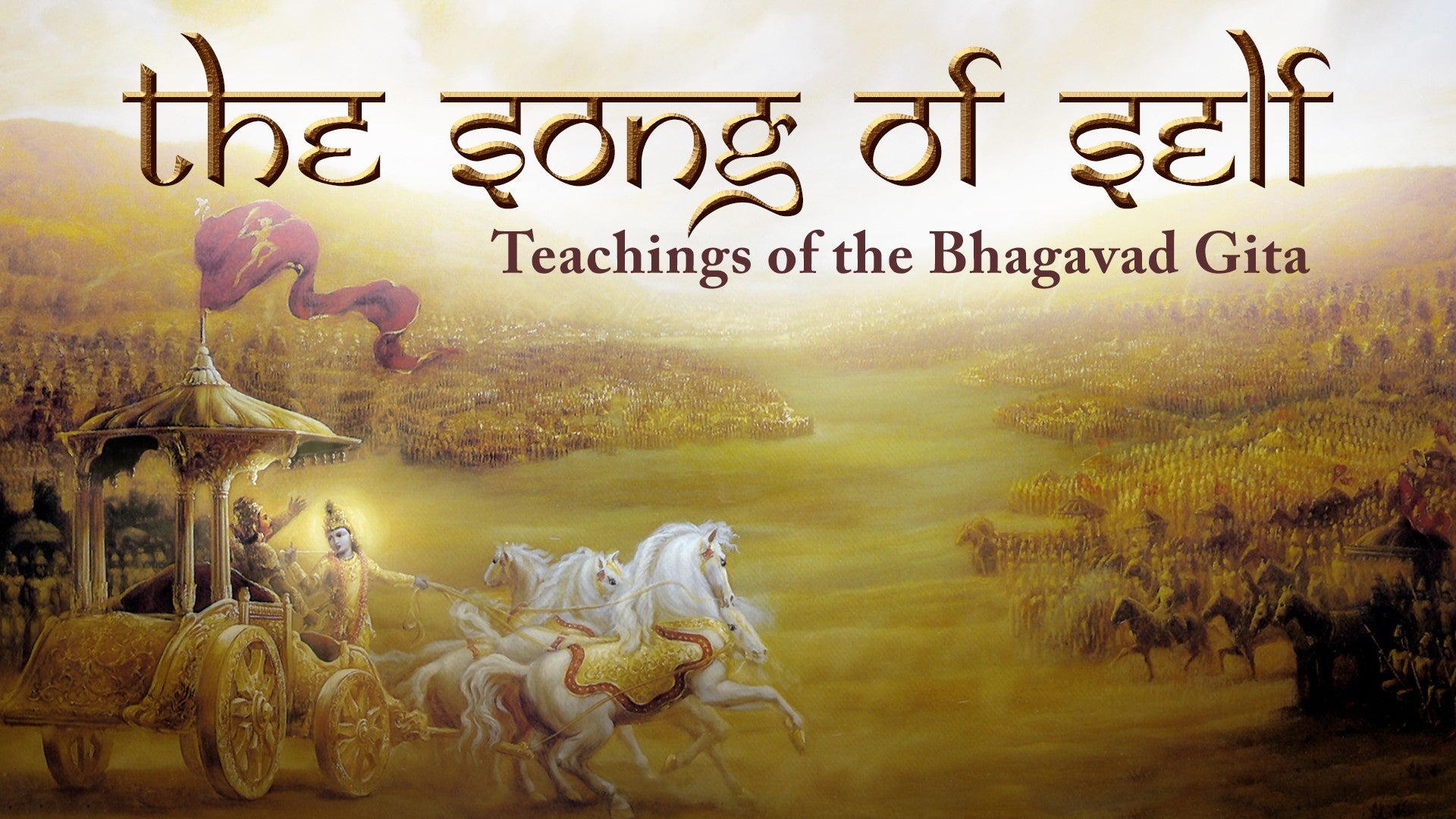Description
About This Video
Transcript
Read Full Transcript
So, having made this promise, no unsuccessful effort, no going in the wrong direction, Krishna then talks in the 41st verse about the type of attitude that is conducive to that type of effort, to the effort to foster integration and to act in yoga. And he says, so at the beginning of the verse he says, so we have in this verse a couple of words that are going to be quite significant in the Gita, we have atma and buddhi, so atma can be interpreted in different ways but basically it means the self, now buddhi refers to that aspect of our individual intelligence that is most subtle and most discerning. So in the Sankhya model of reality which yoga uses as a kind of key reference or foundation, the human mental apparatus is divided into different sections, not because they're actually really different sections, they all overlap but for utilities sake we sometimes refer to buddhi, ahamkara and manas or manaha and manaha is that which allows us to think and process information, it's the manas, it's that processing part of the brain which links the information we take in through our senses to the kind of central part of our awareness. Ahamkara, aham is I, kara, maker, the I maker, sometimes various books that are published on yoga, they will translate ahamkara as ego, however as my mother who I just mentioned always used to say, you can't talk about it like ego, it's not the same as ego in western psychology, you just confuse people, ahamkara is the I maker. So back to my very trusty teaching aid, the bottle, it's my ball, yeah, so if I'm leaving the room and I notice that this bottle is on the floor, I'll go back and pick it up because it's mine, how do I notice it through the powers of my senses which work through my manas and then my buddhi is that part of my awareness that makes a decision, distinguishes it discerns, so the manas process the information, the ahamkara relates that information to my sense of myself as an individual, as this and not that and the buddhi makes a decision, so they all work together.
If I leave the room and I've already packed my long time silver bottle friend into my bag and I see somebody else's bottle that's green let's say, I might say, oh, whose is this green bottle? So again, the manas will process the information that comes through my senses into my sphere of awareness, my ahamkara, so it's not your bottle and buddhi makes a decision, oh, you should maybe ask if it's anybody else's or if anybody knows whose it is. So really these different aspects all work together, so buddhi is the discriminating part of the awareness, it's from the Sanskrit root budd, which means to awaken, so the buddha is the awakened one, is the wise one, so the buddhi is that part of our awareness that allows us to make skillful judgments, skillful decisions to discriminate between what is conducive to wellness, what is not such a good thing. So buddhi can also be used to refer to the more subtle and discriminating aspect of our individual mind and that's what it refers to here in this verse. So Krishna says, hey Arjuna, kuru nandana he calls him, you who are part of a long line of people, remember that the land here is called the kuru land in the context of the Gita, nandana means the sun or the joy of the kurus, so Arjuna, you who are part of a long human line, in other words, you who have human heritage, so we look back at the course of history, we'll see that humans have often been the prisoners of their conditioning, humans have often made choices, not based perhaps always on what is the optimal choice for them but often based on their conditioning and so the name of Arjuna reminds of that and he says, here you are with all this conditioning upon you, so the binding influence of action is a reality that you know, you've experienced it, you're working with it but no problem Arjuna, if you can make your buddhi eka, if you can make it one and if you are vyavasaya, if you can be resolved and determined to be one-pointed, then you can be successful, now we must mention here that eka doesn't mean fixated, it means like, imagine the one point in the centre of a wheel in which all the spokes are in perfect balance, this wheel is in oneness, the centre is linked to everything around it, so it's this type of oneness, it's an integrative, inclusive oneness, it's not a blinkered fixated oneness, this is what Krishna is advocating, he says on the other hand, bahushakah yanantas ca buddhi yo vyavasayana, the buddhi, that most discriminating subtle aspect of the awareness of those who are not making a committed effort, it's very easy for our mental and intellectual and discerning capacities to get dispersed and Krishna gives this image, bahushakah yanantah, endless branches, it can just branch out in so many different directions, like spokes of the wheel that reach away from the actual circumference into all sorts of areas where they can't actually function in a powerful way anymore, so he's advocating integrated awareness in which all the different aspects of the self work as one and to take care against this dispersed tendency, so when we hear this in the world today we might think, oh, because we're really quite often encouraged to be dispersed, you know, it seems that, you know, in recent years people talk a lot about multitasking and oh, you know, I'm a good multitasker but I understand they've done some research about this and they've noticed that even the best or those who consider themselves successful multitaskers don't actually manage to perform very well, they can do lots of things in a mediocre way, Krishna is advocating, no, when you're doing whatever you're doing be fully there, so you can actually come to a sense of completion with that, so now in the next three verses he's going to describe some of the ways we can get distracted or deluded and that's why we'll continue.
The Song of Self: Bhagavad Gita: Chapter 2
Comments

You need to be a subscriber to post a comment.
Please Log In or Create an Account to start your free trial.








